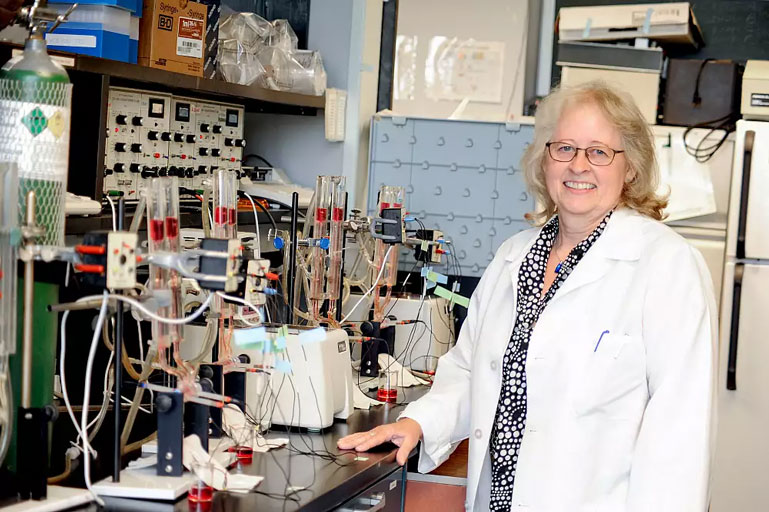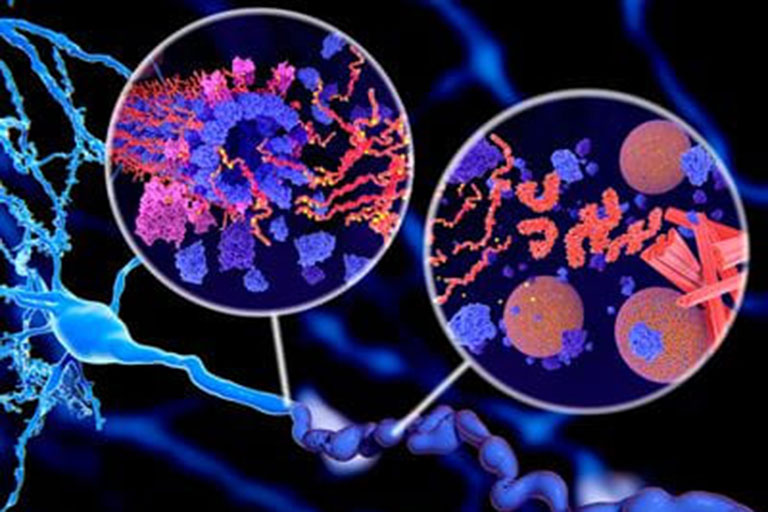Description of the video:
[Audio: Soft upbeat music begins playing. Liana Apostolova starts talking. Video: Footage of Goodman Hall is shown. Text reading "Goodman Hall, IU School of Medicine" plays. Liana Apostolova is shown talking in an office. Animation reading "Liana Apostolova, Distinguished Professor, Indiana University School of Medicine" plays.
Alzheimer's is the most common neurodegenerative disease of the brain. And by neurodegenerative, we mean a disease that occurs later in life. There are some unfortunate individuals who are younger, sometimes as young as 30 and 40, who can acquire Alzheimer's disease. My name is Liana Apostolova. I'm Distinguished Professor and the Barbara and Peer Baekgaard Professor of Alzheimer's Disease Research at the Indiana University School of Medicine.
[Video: Liana Apostolova is shown walking through an office. Animation with text reading "Personalized medicine" is shown. Footage of a Liana Apostolova talking to a patient is shown. Scientists collaborating in a lab is shown. Text reading "New genes, New mechanisms, New treatment targets" plays.
Our research program is going to expand to clinical trials in early-onset Alzheimer's disease over the next 5 to 10 years. It's going to lead us to the next stage of medicine, which is personalized medicine, where individuals will be treated with a combination of therapies for their specific variant of Alzheimer's disease. I study early-onset Alzheimer's disease because I know that this cohort of patients harbors secrets, secrets that we don't know about Alzheimer's, and a lot of those secrets are hidden in this unstudied population. Studying early-onset Alzheimer's disease will help us determine new genes, new mechanisms and new treatment targets.
[Audio: Soft upbeat music ends. Video: Text reading "Remove the stigma" and "Unearth the next cure for Alzheimer’s" is shown. Text reading "INDIANA UNIVERSITY RESEARCH research.impact.iu.edu" plays. Fades to black.]
We also want to remove the stigma from Alzheimer's disease in general, but especially so for these young individuals so that we can unearth the next cure for Alzheimer's disease.




